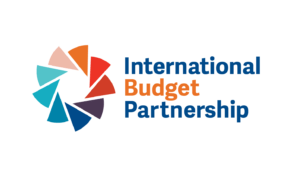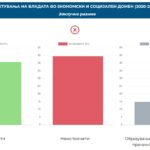
The Government has adopted the Proposal for Amending and Supplementing the Budget of the Republic of North Macedonia for 2024, i.e., the budget rebalance. Finance Think, with the support of the International Budget Partnership, provides the following stance regarding the budget rebalance.
The decision to set macroeconomic projections, on which the budget revenue projections are based, at a reasonable level according to the available information at the time of projection is appropriate. Specifically, in the previous two decades, particularly from the early 2010s onwards, during the budget projection in October-November of the current year for the next year, the macroeconomic projections were set at a higher level to project higher budget revenues and thus present a smaller budget deficit. For more on this topic, see, for example, FT Opinion No. 54 on the Proposed Budget for 2022 from November 16, 2021 and FT Comment no. 36 on the Draft Budget of the Republic of North Macedonia for 2023 from 28 November 2022. Consequently, with each budget rebalance during the year, budget revenues were often cut due to their excessive projection, followed by frequent cuts in capital investments to maintain the projected budget deficit within the initially planned limits, if not to increase it. With the current Budget rebalance, we notice realistic macroeconomic projections, and we support this structural change.
The budget revenue projection with the rebalance aligns with the economic movements of key economic aggregates. In terms of tax policy, the elaboration is taken from the adoption of the Budget in December 2023 and is not aligned with the framework provided in the political program of the party that forms the majority in the Government. We expect that in this segment, based on a broader public dialogue with stakeholders, structural adjustments will occur during the projection of the Budget 2025 later this year. On this topic, Finance Think has expressed its opinion on several occasions, for example, see FT Opinion No. 57 (Opinion of the CIVITAX Group) on the proposed tax reform from August 12, 2022.
What is most concerning in the proposed Budget rebalance is certainly the expenditure side. The rebalance envisages that total expenditures will increase by 19.2 billion denars compared to the basic budget plan for 2024. This results in a dramatic increase in the budget deficit, from the initially projected 3.4% to 4.9% of GDP. Finance Think expresses concern that such an expansion of the budget deficit is a complete deviation from the path of fiscal consolidation, which, although insufficient, began after the pandemic year of 2020.
However, the expansion of the budget deficit is not and should not be treated as a surprise. Political promises made in the period before the elections held earlier this year indicated that significant expansion of fiscal space was necessary for their fulfillment, which is now reflected in the 44% increase in the budget deficit (see FT Opinion No. 61 on the economic promises of the main political parties for the 2024 Parliamentary elections from April 27, 2024). To some extent, the expansion is a result of the central promise of a linear increase in pensions by 2,500 denars in September 2024, totaling 5,000 denars by March 2025. With the linear September adjustment, the pension cost is almost twice as high as the regular adjustment of pensions to the cost of living and the average salary, and this pressures the newly projected deepened deficit.
The expansion of the fiscal deficit is also a result of two other trends. The first relates to the budget’s exhaustion by June 2024: for example, the budget deficit by June 2024 was spent by 71%, which is significantly disproportionate to the period it covers. Besides the political dimension, the exhaustion of budget space is closely related to the multi-layered economic crisis of recent years, for which an empirical analysis can be found in our Policy Study 51: Fiscal Space in the Western Balkans: Evidence from the Recent Multi-Layered Crisis from April 11, 2024. The second trend is the inability or insufficient time to consolidate and rationalize the expenditure side, given the previously undertaken legal obligations that now have or will have fiscal realization. However, it is understandable that significant consolidation of expenditure items, beyond the goods and services item and the traditional debate on the use of vehicles, lunches, furniture, and freelance employment of party members, requires some time. Finance Think expects such moves, based on a broader debate, to become visible during the projection of the Budget 2025, not only in the goods and services item but also in other relevant items such as various subsidies, transfers, etc.
With the current state of the basic Budget and the planned rebalance, the developmental component of the budget is not only not strengthened but is further weakened. In this direction, structural change in budgeting and government policies is needed in the upcoming medium-term period. For structural problems in state budgeting, see Policy Brief No. 68: How is the Budget Planned and Executed? A Historical Overview with a Focus on Capital Expenditures and Expenditures by Beneficiaries from July 19, 2024. Additionally, although medium-term budget planning is one of the most well-known tools that will advance planning and prevent risks of not taking expenditures that are coming in the following fiscal years, its implementation is only on paper.
Regarding the financing of the budget deficit, an important question is securing funds and the new government’s proposal to secure a bilateral loan from the Hungarian government in the amount of 500 million euros with a repayment period of 15 years, including a three-year grace period and an interest rate of 3.25%. The public debate has continuously overlooked the fact that the financing of the budget deficit with the basic Budget was planned through the issuance of a Eurobond, without specifying its amount and the borrowing period. Borrowing from a bilateral partner, while neglecting the potential political component, under more favorable conditions than the current market ones, seems like a constructive step, although the interest rate on any borrowing is currently higher than the realization of economic growth in the country. The key question is the use of these funds for developmental purposes: 1) investment projects of companies that are yet to be realized (i.e., these funds should trigger an investment cycle rather than adding funds to already made investments as the Law on Financial Support of Investments does); and 2) new capital projects of municipalities, instead of covering already incurred debts from irrational management of local public finances.
However, despite the context of the bilateral loan, the volume of necessary financing increases as a result of the significant increase in the fiscal deficit. For this purpose, increased borrowing on the domestic market through the issuance of government securities is also planned. Although the liquidity of the domestic banking system is adequate to macroeconomic conditions, the expansion of the fiscal deficit, partly financed by domestic liquidity, carries an additional risk that fiscal expansion will impact the interest rates in the economy, preventing them from falling within a reasonable period, which has already begun in several economies in Europe and worldwide.
***
Related Infographics:
Only from Eurobonds, 2.4 billion euros are due for repayment over the next four years.
In 2023, the state purposefully borrowed 589 million euros, with the lowest interest rate of 3.675%.
Interest payments on public debt this year reach a historic high.
***
With the support of






